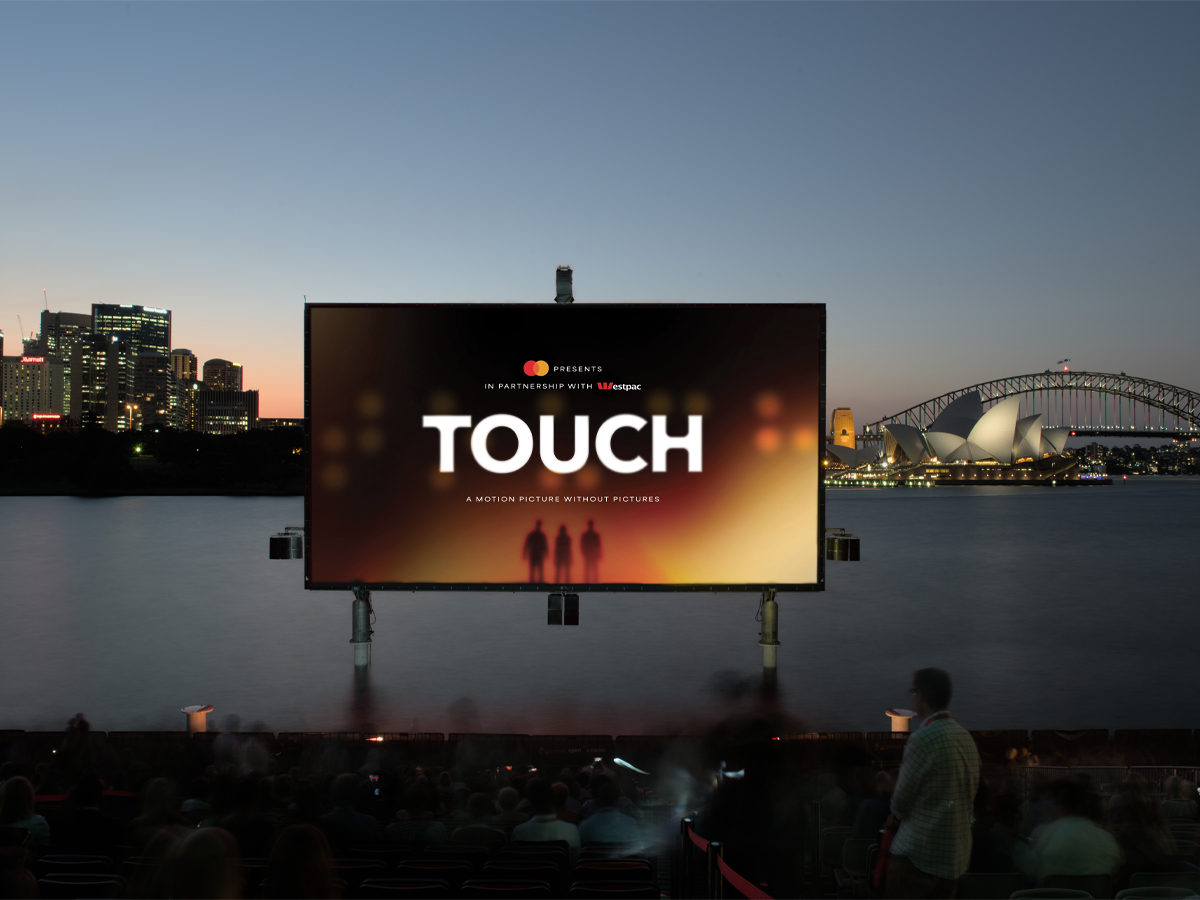Visualise this if you can – a film without pictures that uses the power of sound to tell a story.
Mastercard has partnered with Westpac, to screen ‘TOUCH’, Australia’s first pictureless feature-length film that focuses solely on the audio experience, that will premiere at Sydney’s OpenAir cinema in February.
Created by a diverse cast and crew with a shared ambition to redefine what the cinematic experience could be without pictures, it carries a storyline that explores a man’s mind, his memory and his tics, all without images.
“The film has been designed for people to enjoy, and experience what it’s like not to have vision to orient you. To make the audience use their ears as if they are detectives, gripped by what’s going to happen next,” director Tony Krawitz said. It follows a young man, Ben, who gets trapped in the consciousness of his father, after an experiment goes wrong. To escape, Ben must go on an epic adventure through his dad’s memory, learning more about a man he thought he knew.
Bus Stop Films supported the production with a series of focus groups, that included people who are blind or with low vision, along with crew members in roles such as project consultants and director’s attachments.
Blind actor Benjamin Phillips, said for people like him the appreciation of film often relies heavily on the audio experience, so when a film’s sound evokes emotion, it can paint a colourful picture in their imagination. “Working on TOUCH allowed me to collaborate creatively on such an inclusive film, unlock opportunities in production, and showcase to Australia how content can be experienced, without the limitations of ability or disability,” he said.
Deb Deshayes, CEO of Blind Citizens Australia, consultants on the film, said it was crucial to have entertainment that not only considers people who are blind or vision impaired, but also involves them in the whole development process. “A film like TOUCH is an important step towards building a more inclusive future that will allow around 500,000 Australians to enjoy content like everyone else. For people who are blind or vision impaired, movies like this and the use of audio description make a huge difference to how we engage with media and socialise with our peers,” she said.
According to Mastercard marketing executive vice president Julie Nestor, innovation should always be driven by the impulse to include. “By leveraging the power of sound, Mastercard is aiming to create an immersive experience transcending visual boundaries and redefining storytelling in cinema,” she said. Mastercard has also partnered with the Australian Open in a pilot for wheelchair tennis. Read the article in this newsletter.
An important part of the project for Westpac was making sure the needs of individuals were considered as part of the end-to-end cinema experience, from accessible amenities to accommodating guide dogs. Westpac head of access and inclusion, Majella Knobel, said, “It’s been wonderful collaborating with Mastercard and OpenAir to ensure a broad diversity of needs have been considered as a common thread throughout the entire conversation”.
Earlier this year, Westpac became the first Australian issuer to roll out accessible cards with the Mastercard Touch Card feature, that carries tactile notches to help people who are blind or low-sighted identify and differentiate their credit, debit and prepaid cards.
For more information, visit https://events.humanitix.com/mastercard-touch-movie

